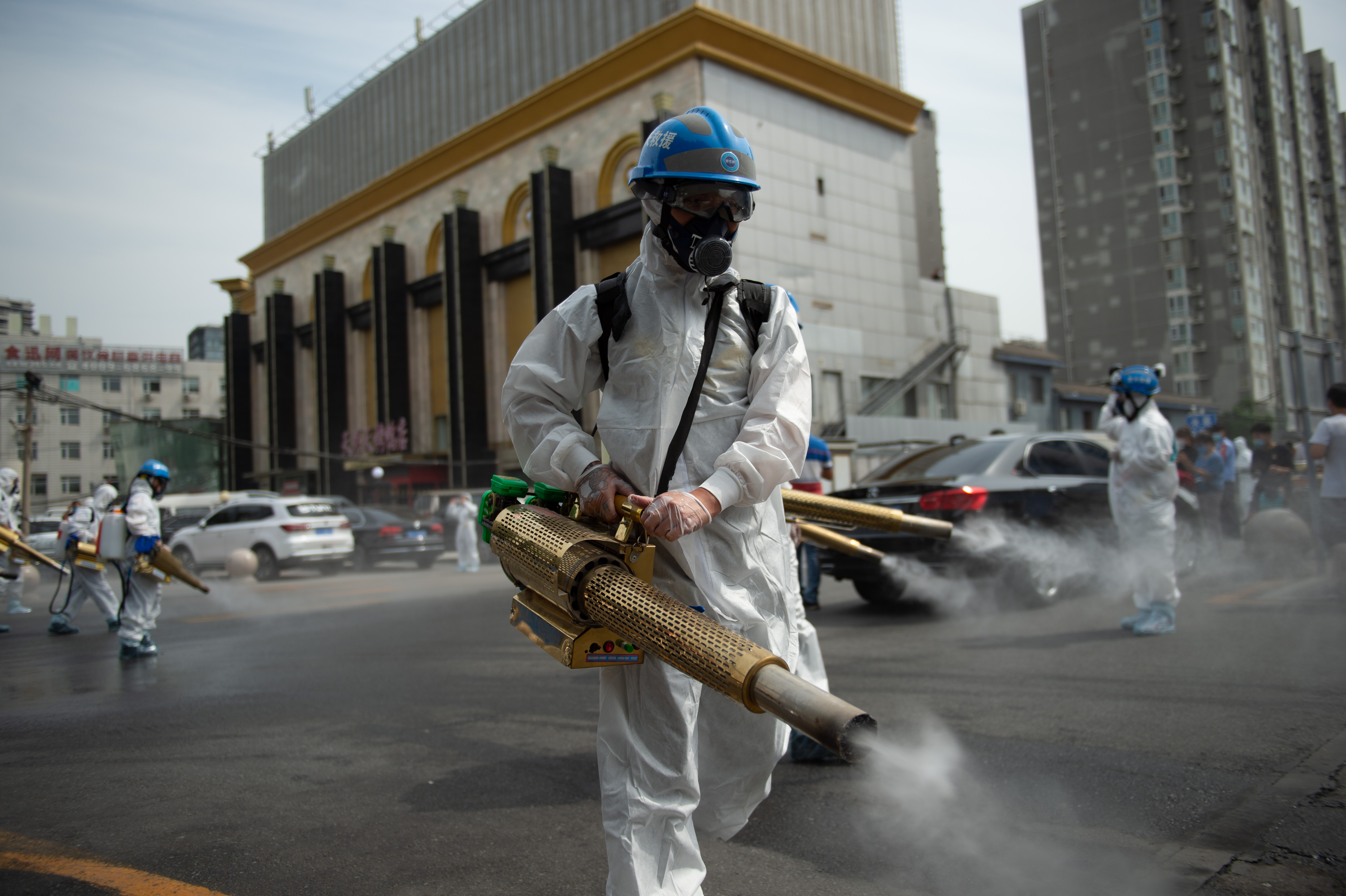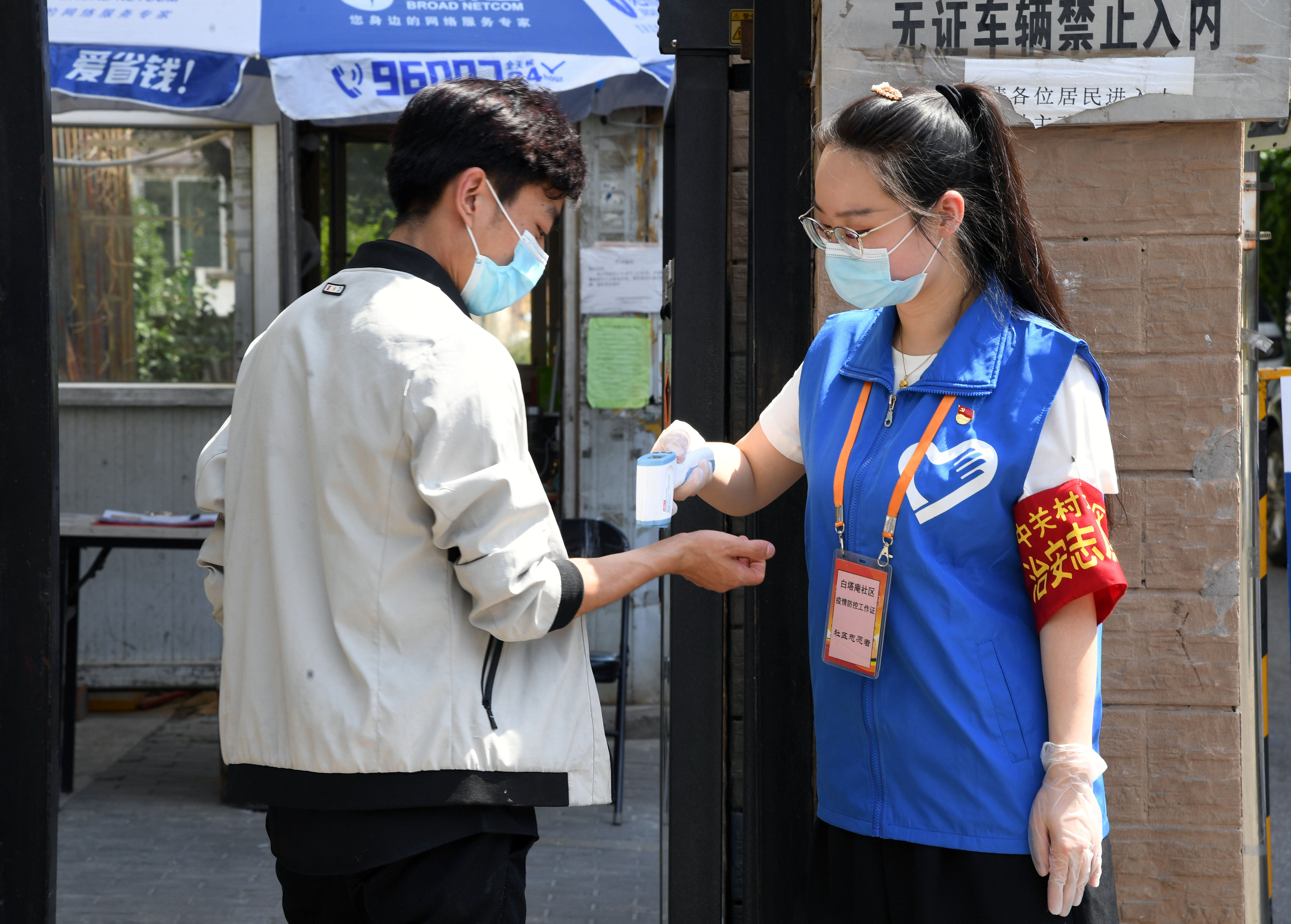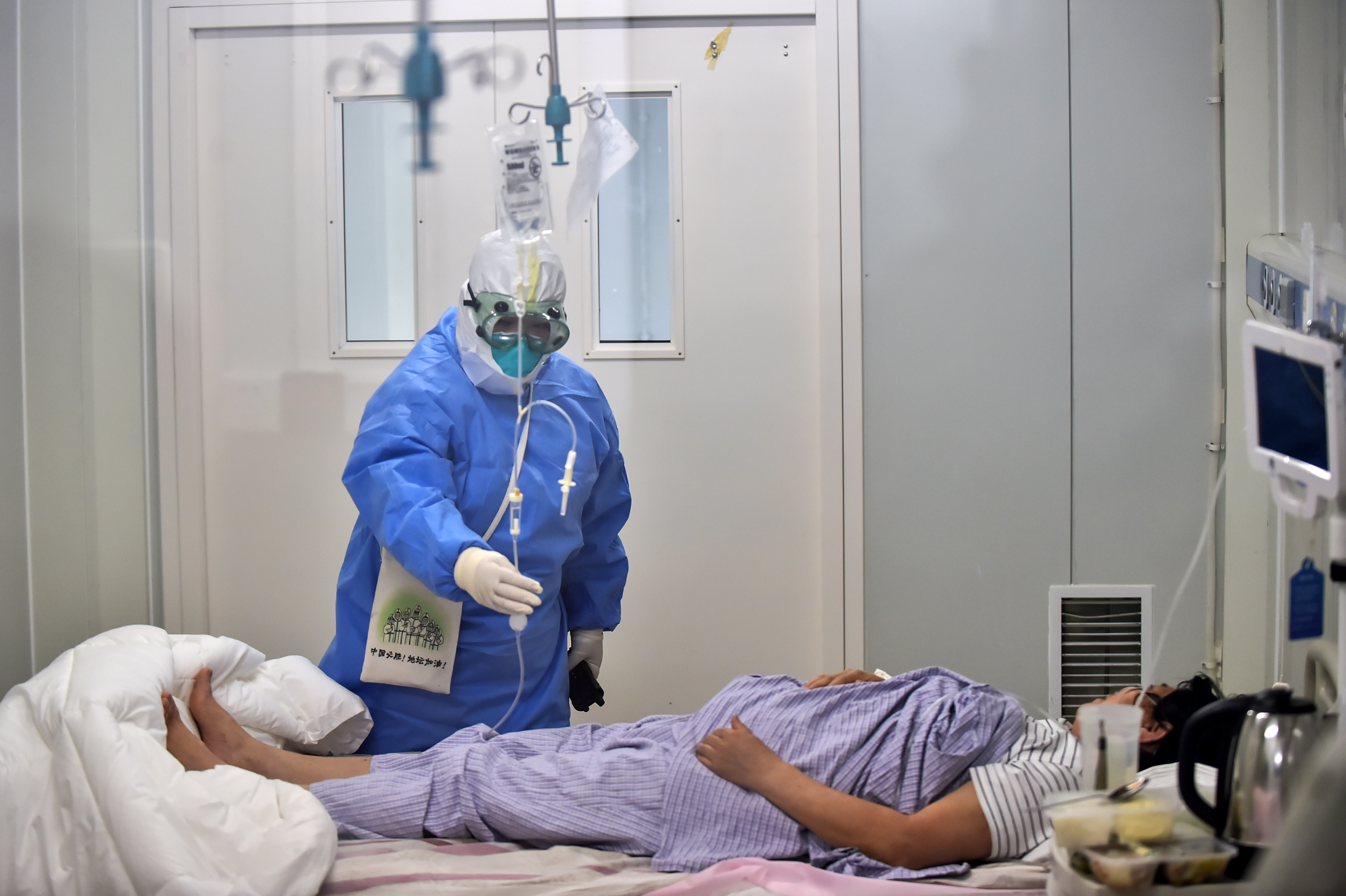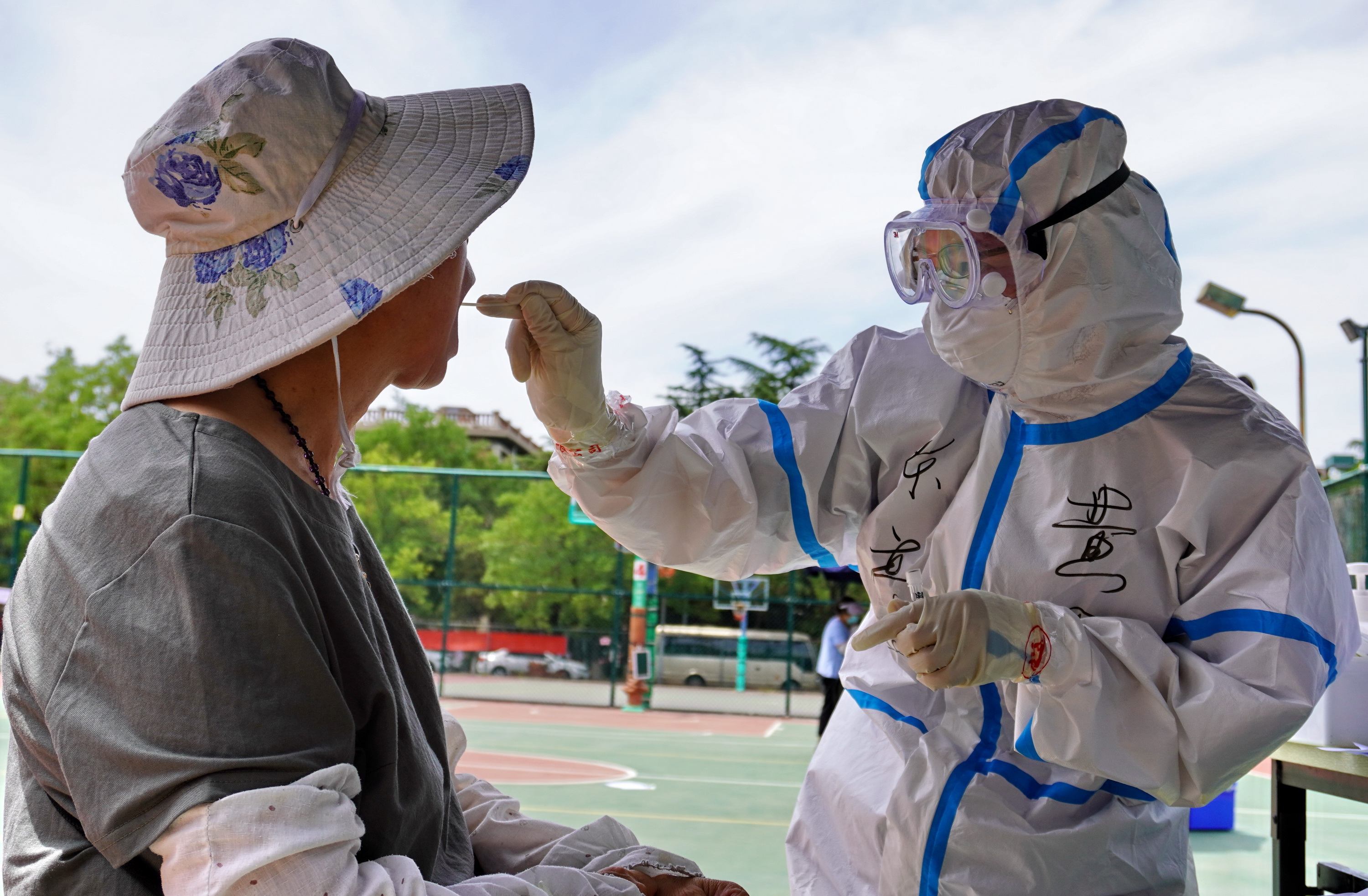Beijing battles to contain COVID-19 cluster infections
Beijing has upgraded its emergency response to COVID-19 from Level III to Level II, the second-highest of the four-tier system, as the city is battling to contain new clusters of COVID-19.
Beijing has upgraded its emergency response to COVID-19 from Level III to Level II, the second-highest of the four-tier system, as the city is battling to contain new clusters of COVID-19.
From June 11 to 16, Beijing reported 137 domestically transmitted COVID-19 cases, most of which were related to the now-closed Xinfadi wholesale farm produce market in the city's Fengtai District. Cases related to the Beijing outbreak have also been reported in a few other provinces. The new cases emerged after the city had seen no new domestically transmitted cases for 57 consecutive days.

Members of the Beijing Blue Sky Rescue(BSR) team conduct disinfection at the Yuegezhuang wholesale market in Beijing, capital of China, June 16, 2020. [Photo/Xinhua]
"The epidemic situation in Beijing remains grim and the city has reported a daily double-digit increase in domestically transmitted COVID-19 cases in recent days," said Chen Bei, deputy secretary-general of the Beijing municipal government, at a press conference on Tuesday night.
A meeting of the city's Party leadership on Tuesday underlined "taking the most resolute, decisive and stringent measures, and racing against time to conduct screening, testing, epidemiological investigations and source tracing... to resolutely block the transmission route of the epidemic and control the situation quickly."
The meeting, presided over by the city's Party chief Cai Qi, also called for closely relying on citizens to jointly win the battle against COVID-19.
Partial travel restrictions
Following the upgrade of emergency response, closed-off management has been resumed in all communities in Beijing and those who seek to enter are required to go through four steps -- having their body temperature tested, showing a registered pass, having their health code checked and completing real-name registration, together with strict exit controls.

Volunteer Wang Yue (R) checks a resident's body temperature at the entrance of a community in Haidian District in Beijing, capital of China, June 16, 2020. [Photo/Xinhua]
Meanwhile, Beijing has listed one high-risk township and 27 medium-risk sub-districts or townships, which jointly accounted for 8.3 percent of the city's total sub-districts and townships, said Chen.
Those from the medium- and high-risk areas and relevant people from the Xinfadi farm produce market are not allowed to leave Beijing.
Other people who need to leave the city must have a negative nucleic acid test result taken within the past seven days.
Online classes have been resumed and students are not allowed to return to school from Wednesday. Large-scale activities such as exhibitions and sport events have been halted, and cultural entertainment venues and underground swimming pools and gyms will remain closed.
Gatherings are discouraged and people are suggested to wear masks in closed spaces.
Tracing the source
"The new cluster outbreak is preliminarily judged to be caused by human-to-human transmission or infection due to the contamination of articles and the environment," according to Chen, adding that there had been confirmed secondary infections among close contacts.

A nurse treats a COVID-19 patient at an isolation ward in Beijing Ditan Hospital in Beijing, capital of China, June 16, 2020. [Photo/Xinhua]
Shi Guoqing, deputy director of the Emergency Center of the Chinese Center for Disease Control and Prevention, said there has been no evidence that salmon was the host or intermediate host of the novel coronavirus.
Shi said contaminated salmon was found in certain affected sites of the Xinfadi farm produce market, but no coronavirus has been detected in salmon yet to enter the contaminated sites.
Treatment and screening
The new cluster infections in Beijing appeared after the country had made strategic achievements in containing the novel coronavirus epidemic and was on alert against a domestic rebound as well as imported COVID-19 cases.
Currently all the newly confirmed COVID-19 patients are being treated at Beijing Ditan Hospital. As of midnight Sunday, one case was critical and two were severe, and all three had been transferred to the ICU, said Wu Guo'an, the hospital's vice president.
The remaining patients have mild or common symptoms.
Beijing Ditan Hospital has intensified its efforts to cope with the emergency since June 11 and has opened four more zones to screen and treat COVID-19 patients. The hospital has initially prepared 220 beds for COVID-19 patients and the capacity will soon be expanded to 400 beds.
On Monday, the Beijing Hospitals Authority selected 100 medics including 24 doctors, 62 nurses and 14 staff from clinical labs and radiology departments, to aid the treatment at Beijing Ditan Hospital. The medics are from 19 local hospitals including Beijing Cancer Hospital, Beijing Shijitan Hospital and Xuanwu Hospital.

A medical worker collects throat swab of a resident at a sampling site in Fengtai District of Beijing, capital of China, June 15, 2020. [Photo/Xinhua]
Ma Shanfang, director of Beijing Ditan Hospital's department of medical affairs, said the symptoms of the new cases are somewhat different from those of previous patients, but they are all individual cases and still need to be further observed and summarized.
"The physical condition of each patient is different, so are their symptoms. Previous experience has shown that the novel coronavirus can invade many organs and systems of the human body, thus requiring medical staff to be highly vigilant," said Ma.
"As long as we can detect and treat the new cases at an early stage, the overall cure rate of COVID-19 is still high and we're confident about that," said Ma.
Beijing is also conducting extensive COVID-19 screening, with its daily testing capacity reaching over 90,000 samples.
At the nucleic acid testing site of Beijing Youan Hospital, people need to make an appointment for the test to avoid crowding. A woman surnamed Li, who was taking the test voluntarily, said, "I went to the Xinfadi market once two weeks ago. I'm not sure, I want to have a test."
About 200,000 people who had visited the market since May 30 were interviewed via door-to-door inquiries, calls, social media platforms and other methods. Nucleic acid tests for these people are underway while they are asked to stay at home for medical observation.
Beijing has mobilized nearly 100,000 community workers to find out people who had gone to the Xinfadi market.

